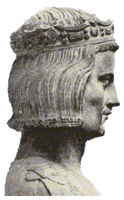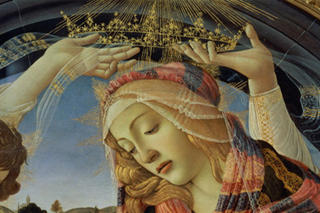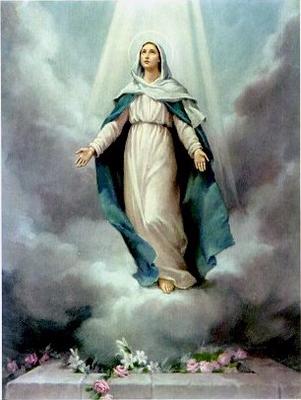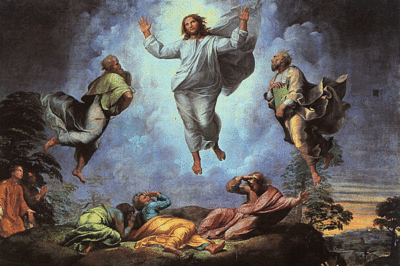"'Son, for myself, I have no longer any pleasure in anything in this life. Now that my hopes in this world are satisfied, I do not know what more I want here, or why I am here.
"'There was indeed one thing for which I wished to tarry a little in this life, and that was that I might see you a Catholic Christian before I died. My God has answered this more than abundantly, so that I see you now made his servant and spurning all earthly happiness.
"'What more am I to do here?'
"I do not well remember what reply I made to her about this. However, it was scarcely five days later--certainly not much more--that she was prostrated by fever.
"While she was sick, she fainted one day and was for a short time quite unconscious. We hurried to her, and when she soon regained her senses, she looked at me and my brother as we stood by her, and said, in inquiry,
'Where was I?'
"Then looking intently at us, dumb in our grief, she said,
'Here in this place shall you bury your mother.'
I was silent and held back my tears; but my brother said something, wishing her the happier lot of dying in her own country and not abroad.
"When she heard this, she held him fast with her eye and an anxious face, because he cherished such earthly concerns, and then gazing at me she said,
'See how he speaks.'
"Soon after, she said to us both:
'Lay this body anywhere, and do not let the care of it be a trouble to you at all. Only this I ask: that you will remember me at the Lord's altar, wherever you are.'
* * * * *
"On the ninth day of her sickness, in the fifty-sixth year of her life and the thirty-third of mine, that religious and devout soul was set loose from the body.
"I closed her eyes; and there flowed in a great sadness on my heart and it was passing into tears, when at the strong command of my mind my eyes sucked back the fountain dry, and sorrow was in me like a convulsion. [...] But she neither died unhappy nor did she altogether die.
* * * * *
"So, when the body was carried forth, we both went and returned without tears. [...] Then I slept, and when I awoke I found my grief not a little eased. And as I lay there on my bed, those true verses of Ambrose came to my mind, for You are truly...
"'Deus, creator omnium,
Polique rector, vestiens
Diem decoro lumine,
Noctem sopora gratia;
"'Artus solutos ut quies
Reddat laboris usui
Mentesque fessas allevet,
Luctusque solvat anxios.'
"'O God, Creator of us all,
Guiding the orbs celestial,
Clothing the day with lovely light,
Appointing gracious sleep by night:
"'Thy grace our wearied limbs restore
To strengthened labor, as before,
And ease the grief of tired minds
From that deep torment which it finds.'"And then, little by little, there came back to me my former memories of Your handmaid: her devout life toward You, her holy tenderness and attentiveness toward us, which had suddenly been taken away from me--and it was a solace for me to weep in Your sight...."
Excerpts from the Confessions of St. Augustine - Book 9, Chapters 10-12
Today the Church celebrates the memory of St. Monica, mother of St. Augustine
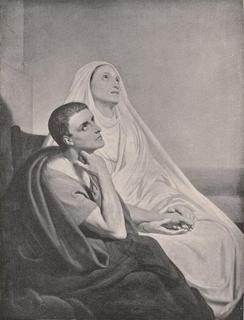 (from an earlier post)
(from an earlier post)
 A Penitent Blogger
A Penitent Blogger



